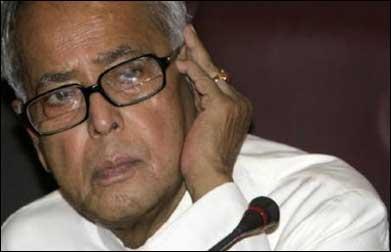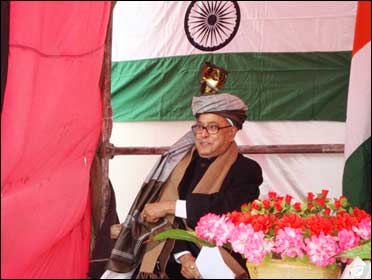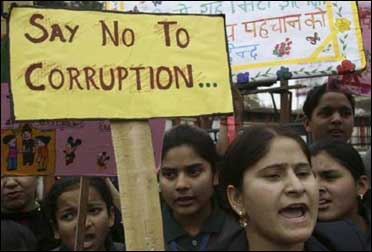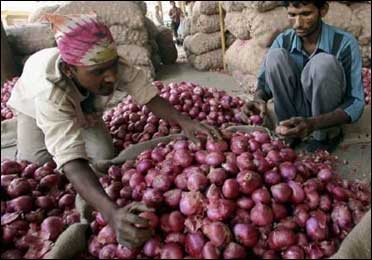Budget: A heavy burden on Pranab Mukherjee
Last updated on: February 22, 2011 10:42 IST
By now India's finance minister must be busy putting the finishing touches to his Budget and Budget speech due next Monday.
One often wonders whether Mr Mukherjee gets adequate time to ponder over the broader issues, distinct from the urgent ones.
He is a workaholic, but even in normal circumstances, the Budget is a time-consuming exercise.
Also, compared to other finance ministers, Mr Mukherjee bears a much heavier burden as the chairman of various groups of ministers, "empowered" or otherwise, to whom knotty issues are referred.
Click NEXT to read on

Budget: A heavy burden on Pranab Mukherjee
Last updated on: February 22, 2011 10:42 IST
He is also the UPA's troubleshooter in Parliament and for the unusually large number of sensitive issues currently in the government's lap.
As it happens, the Budget is scheduled at a time of great uncertainty in the global political economy. There is also a growing debate on issues of growth and distribution (Jagdish Bhagwati vs Amartya Sen?), a point I will discuss later.
Recent events in several Arab countries clearly have implications for global economy in terms of oil prices, the continued availability of the Suez Canal for global shipping and even food prices, as The Economist (February 5) recently argued. And the developed world is having its own, increasingly intractable, fiscal and growth problems.
Click NEXT to read on

Budget: A heavy burden on Pranab Mukherjee
Last updated on: February 22, 2011 10:42 IST
Recent events in Tunisia, Egypt and neighbouring countries seem another manifestation of the well-known "chaos theory" in physics, which, sometime back, was also fashionable among financial market analysts.
The theory argues (of course with a large number of equations) that the origin of a major event can sometimes be very insignificant - the standard example used is that of the fluttering of a butterfly over the island of Fiji that could well be the root cause of a cyclone over West Indies a couple of months later.
Click NEXT to read on

Budget: A heavy burden on Pranab Mukherjee
Last updated on: February 22, 2011 10:42 IST
Take Tunisia. The civil unrest started with a policewoman seizing the hand cart of a vegetable seller and slapping him.
The humiliation resulted in the latter's suicide, and that triggered street protests, which ultimately led to the president of 24 years abdicating and fleeing.
And, the revolution in triggered unrest that led to the ouster of the Egyptian president and disturbances in other neighbouring countries (Jordan, Yemen, Syria, Algeria and so on). Will it spread to Saudi Arabia, a country that produces one of every four barrels of oil consumed globally?
Click NEXT to read on

Budget: A heavy burden on Pranab Mukherjee
Last updated on: February 22, 2011 10:42 IST
To be sure, minor events trigger major consequences only when other, more fundamental conditions exist. According to Professor Fouad Ajami of Johns Hopkins University School of Advanced International Studies, who wrote a brilliant essay on developments in Egypt published recently in Newsweek (February 14), these conditions are:
"fabulous wealth side by side with mass poverty" (recent analysis and research suggest there is strong correlation between income inequalities and economic crises, see Finance and Development, December 2010); "the vanity of the rulers and their wives and their children" (to quote a mundane example, how many of our VIPs follow, for example, security procedures at airports?); "The fortunes of the rulers are the real weapons of mass destruction in the region". Click NEXT to read on

Budget: A heavy burden on Pranab Mukherjee
Last updated on: February 22, 2011 10:42 IST
Add to this crony capitalism, an alliance between rulers and rich capitalists, to loot the people; unemployment; high food prices; corruption; the unaccountability of the ruling class; and you have an explosive combination.
As Tunisia and Egypt show, it does not even take organised opposition to bring down governments. Social networks like Twitter and Facebook and the power of the Internet are often enough to bring people to the streets.
It is striking that practically all of these factors seem to be present in our country. To be sure, we are a (non-functioning?) parliamentary democracy, unlike the Arab countries. But can this, by itself, compensate for all the other weaknesses? For how long?
Click NEXT to read on

Budget: A heavy burden on Pranab Mukherjee
Last updated on: February 22, 2011 10:42 IST
Is the annual 8.5 per cent GDP growth rate being assumed as the new Hindu Rate of Growth (as Raghuram Rajan questioned in an interview); that it will hold irrespective of what we do - or not do? As stubborn as 3 per cent once was? What happens if growth falters?
Though food price inflation makes headlines daily, unemployment could well be an even bigger issue.
To quote three recent instances: when the Mumbai Mahanagar Palika advertised for 700 vacancies for school teachers, it received 70,000 applications; Cidco's 40 jobs attracted 17,000 applications; and ITBP's 416 vacancies attracted 150,000 job-seekers at the recruitment centre. Tragically, many died in the travel rush.
Click NEXT to read on

Budget: A heavy burden on Pranab Mukherjee
Last updated on: February 22, 2011 10:42 IST
In the face of the dire need for jobs, we seem to have become a people who spend far more time and energy blocking any change - a new factory or power station or seeds, the Goods and Services Tax, bureaucratic ways, labour laws and so on - than in pushing for or adapting to it.
Too many social activists and well-meaning people have become extremely adept at this, and take pride in it. Can we create jobs without change? The song and dance over Incredible India in Davos is over; the hard task is just beginning.
Tailpiece
Is our government in Delhi any more popular on the streets of Srinagar than President Mubarak was on the streets of Cairo?

Source:











